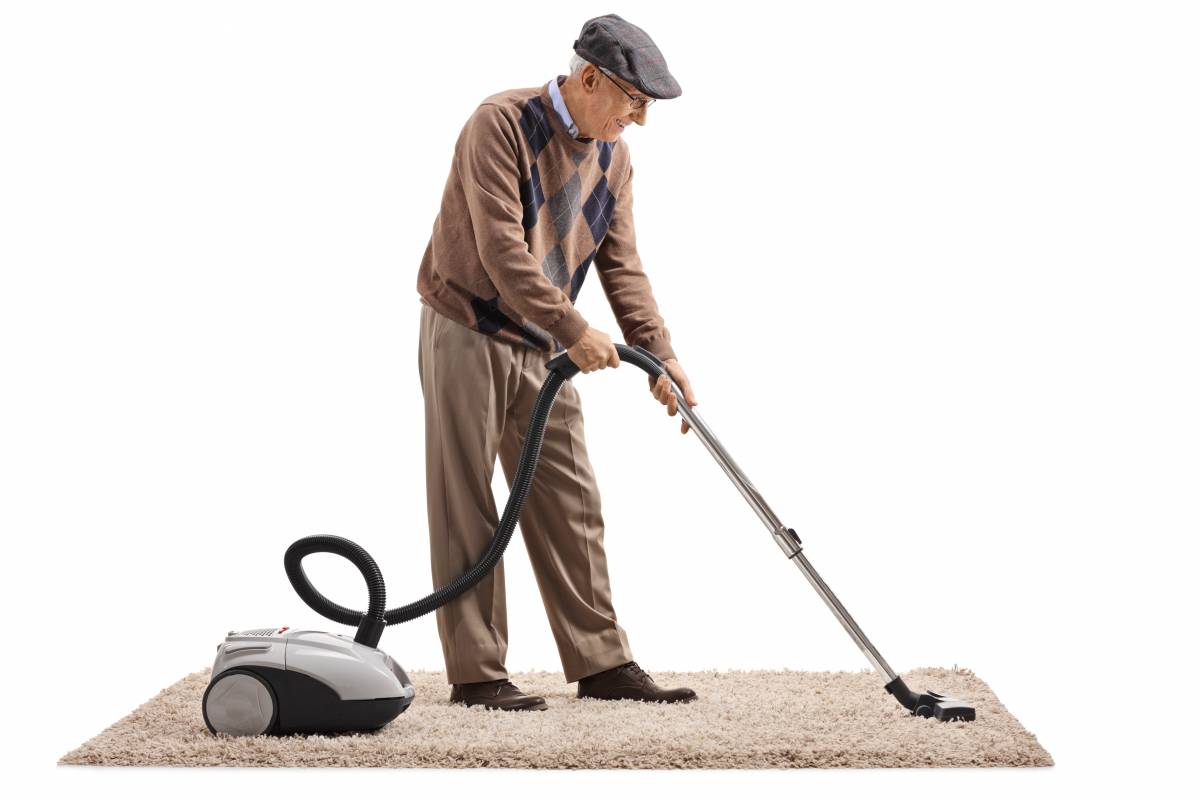PhysioUpdate 30th November 2021
As the government apparently veers towards demanding that the NHS workforce in England is vaccinated against Covid-19 and flu, the NHS Confederation issued a statement today (5 November) voicing concerns about the potential knock-on effects on staffing levels.
The confederation pointed out that the Department of Health and Social Care’s consultation on making such vaccinations a condition of deployment for NHS workers has closed, while health secretary Sajid Javid recently stated that he is ‘leaning towards’ making them compulsory.

Care home mandate
People who work in or visit care homes will be covered by a similar mandate next week (11 November) – prompting claims that 42,000 care home workers could quit in response. A survey of more than 7,000 care home staff found that three respondents in four believed staffing pressures would increase, the confederation said.
Meanwhile, some health unions, such as the Chartered Society of Physiotherapy, have suggested that any vaccinations should only be conducted on a voluntary basis.
What the confederation says could happen if vaccinations are made compulsory and staffing levels take a ‘hit’
- patient care, including tackling the treatment backlog, could suffer
- further pressure will be heaped on the remaining workforce – many of whom are reported to be ‘close to burnout’
- at a time when demand is rising, A&E departments, primary settings, mental health and ambulance services will face disruption
We recognise this will be a difficult decision and our members will comply with whatever is decided but the government must publish its risk assessment and set out how it will help mitigate any impact on patient care [Matthew Taylor]
Matthew Taylor, the NHS Confederation’s chief executive, said: ‘Staff across the NHS recognise their duty to make sure they are doing everything they can to protect their patients, colleagues and themselves from avoidable infections.
‘Mandating Covid-19 and flu vaccinations in the NHS could offer a further incentive for the remaining staff who are eligible but have not come forward yet to get jabbed. However, the impact this could have on staffing levels needs to be shared by the government without delay.'
Vacancy levels: a key consideration
Mr Taylor said: ‘There are 93,000 vacancies across the NHS and at a time of increased demand for healthcare services, we simply cannot afford to see staff leave or be removed from frontline care.
‘The secretary of state has made it clear that tackling the treatment backlog is his key priority but if he is not careful, this policy could end up restricting the NHS’s ability to continue to do that effectively.
'Difficult decision'
Mr Taylor added: ‘We recognise this will be a difficult decision and our members will comply with whatever is decided but the government must publish its risk assessment and set out how it will help mitigate any impact on patient care.'
Physiotherapists who found their access to prisons was barred during the Covid-19 lockdown and its aftermath could face higher demands as a ‘business as usual’ approach gradually becomes the norm.
That is the conclusion of a Health Foundation working paper, titled Covid-19 and the prison population, which was published this month. It reports that the ‘full lockdown’ that was rapidly implemented in all the 117 prisons in England and Wales from March 2020 led to external visits being stopped and prisoners being isolated in their cells for 23 hours a day.

Addressing health inequalities
Health inequalities are rife among prisoners, who face an increased exposure to disease and find it hard to access health services and support, the paper stresses.
‘Prison is increasingly considered one of the place-based social institutions that determines health status and health outcomes,’ it notes.
Measures intended to lessen the spread of Covid-19 had some unintended negative consequences, the paper suggests: 'The prolonged prison lockdown affected prisoners’ ability to maintain their own physical health. Opportunities to exercise and eat healthily were limited, leading to inactivity, reported weight gain and low mood, and exacerbating existing health conditions.'
Written by a 11-person team led by public health consultant Chantal Edge, the paper points out that prisoners are generally taken to hospitals for secondary-care appointments.
As these services [including physiotherapy] become fully restored, with a more 'business as usual' approach implemented, they are likely to see increased demand, to address the backlog [Chantal Edge et al.]
Physiotherapy in-reach services
However, it notes that some in-reach services – such as physiotherapy, optometry and sexual health – have traditionally been offered in prisons.
‘During the pandemic, some of these had difficulty entering prisons due to infection-control restrictions and were able to provide assessments only remotely, if at all.
‘As these services become fully restored, with a more “business as usual” approach implemented, they are likely to see increased demand, to address the backlog.'
The Health Foundation paper points out that community-based services could find themselves picking up the slack once prisoners whose needs have not been met during their incarceration are released.
Telemedicine and other technological advances
Before the onset of the pandemic, the use of telemedicine – primarily video-based health consultations – in English prisons was confined to ‘small pockets of innovative practice’. But the pandemic prompted NHS England, NHS Improvement, and the prisons and probation service to provide software and equipment for video consultations.
‘This offered opportunities to make efficiencies and improvements to the way medication was delivered and respond to acute incidents. These changes are likely to affect the way some health care services are delivered permanently, providing an alternative way to offset security and care in prisons, with benefits felt beyond the pandemic,’ the paper notes.
Other technological advances included supplying prisoners with continued positive airway pressure machines and pulse oximeters'
The paper forms part of the Health Foundation’s Covid-19 impact inquiry, which focuses on the factors that contributed to the death toll associated with the pandemic.
The first author Chantal Edge is a consultant in public health and a specialist clinical adviser at NHS England/Improvement, and the UK Health Security Agency. Dr Edge led a team of 10 other experts in the field.
To download a copy of the working paper, titled Covid-19 and the prison population, visit: https://www.health.org.uk/publications/covid-19-and-the-prison-population
It was produced as part of the Health Foundation’s Covid-19 impact inquiry. For more information about this work, visit: https://www.health.org.uk/what-we-do/a-healthier-uk-population/mobilising-action-for-healthy-lives/covid-19-impact-inquiry
Potential links between doing housework on a regular basis and having a better attention span – and even to being less likely to experience a fall – have been highlighted in a paper appearing in BMJ Open.
The paper was written by a Singapore-based team of researchers, and the paper’s first author is Shuen Yee Lee from the Singapore Institute of Technology. It notes that, despite reminders about the importance of keeping physically active, physical activity globally in 2016 fell below recommended weekly levels and had remained stable for a decade. People in high income countries were more than twice as likely as those in low-income countries to be ‘couch potatoes’.

Housework involves physical activity and is an important indicator of being able to live independently. The researchers wanted to explore whether doing household chores might contribute to healthy ageing and boost physical and mental capacity among older adults in a wealthy country. Their study focused on 489 randomly selected adults, who were living independently in a large residential town in Singapore and were able to carry out routine daily tasks.
The subjects, aged from 21 to 90, had fewer than five underlying conditions and no cognitive issues. They were divided into two age bands: 21-64 years (249; average age 44), classified as ‘younger’; and 65-90 years (240; average age 75), classified as ‘older.’
The participants’ walking (gait) speed and sit-to-stand speed from a chair (indicative of leg strength and falls risk) was charted as a measure of their physical abilities. Validated tests were used to assess mental agility (short and delayed memory, visuospatial ability, language and attention span) and physiological factors linked to falls. The researchers asked the subjects about the intensity and frequency of regular household chores, as well as about any other types of physical activity.
These results collectively suggest that the higher cognitive, physical and sensorimotor functions related to heavy housework activities might plausibly be associated with lower physiological fall risk ... [Shuen Yee Lee et al.]
'Light' and 'heavy' housework
Light housework tasks included washing up, dusting, making the bed, hanging out the washing, ironing, tidying up, and cooking. Heavy housework was defined as window cleaning, changing the bed, vacuuming, washing the floor, and activities such as painting and decorating.
Housework intensity was measured in metabolic equivalent of task (METs). These relate to the amount of energy (calories) expended for each minute of physical activity. Light housework was assigned a MET of 2.5; heavy housework was assigned one of 4.
About one in three (36 per cent; 90) of those in the younger group and nearly half (48 per cent;116) of those in the older age group, met the recommended physical activity quota from recreational physical activity alone. But nearly two thirds (61 per cent, 152 younger; and 66 per cent, 159 older) met this target through housework alone.
After adjusting for other types of regular physical activity, the results showed that housework was associated with having sharper mental abilities and better physical capacity. But this result was only found among those in the older age group. Cognitive scores were 8 per cent and 5 per cent higher, respectively, in those doing high volumes of light or heavy housework compared with those in the low volume groups.
And the intensity of housework was associated with specific cognitive domains: heavy housework was associated with a 14 per cent higher attention score, while light housework was associated with 12 per cent and 8 per cent higher short and delayed memory scores, respectively.
Similarly, sit-to-stand time and balance/coordination scores were 8 per cent and 23 per cent faster, respectively, in the high-volume group than they were in the low volume group.
Educational levels could be play a part
On average, those in the younger age group had five more years of education than their older counterparts. Because education level is positively associated with baseline mental agility and slower cognitive decline, this might explain the observed differences in the impact of housework between the two age groups, the researchers explain.
The authors conclude: ‘These results collectively suggest that the higher cognitive, physical and sensorimotor functions related to heavy housework activities might plausibly be associated with lower physiological fall risk among community-dwelling older adults.’
They add: ‘Incorporating [physical activity] into daily lifestyle through domestic duties (i.e. housework) has the potential to achieve higher [physical activity], which is positively associated with functional health, especially among older community-dwelling adults.’
An observational study
As the study was observational in nature, the researchers acknowledge that cause cannot be established. They also note that they relied on people’s subjective reports of their physical activity levels and the volume and intensity of household chores. But they point to previous research indicating a link between aerobic exercise and improved cognitive function, so the sharper mental agility associated with housework might occur through similar mechanisms.
The BMJ Open paper, titled Cross-sectional associations of housework with cognitive, physical and sensorimotor functions in younger and older community-dwelling adults: the Yishun Study is available here: https://bmjopen.bmj.com/lookup/doi/10.1136/bmjopen-2021-052557
Want to receive newsletters?
Join Us
Sign up today for membership and get...
✓ Regular newsletters✓ Full website access
✓ Sponsor Benefits
We’ll keep you connected so you’ll NEVER MISS AN UPDATE!
Join Here




